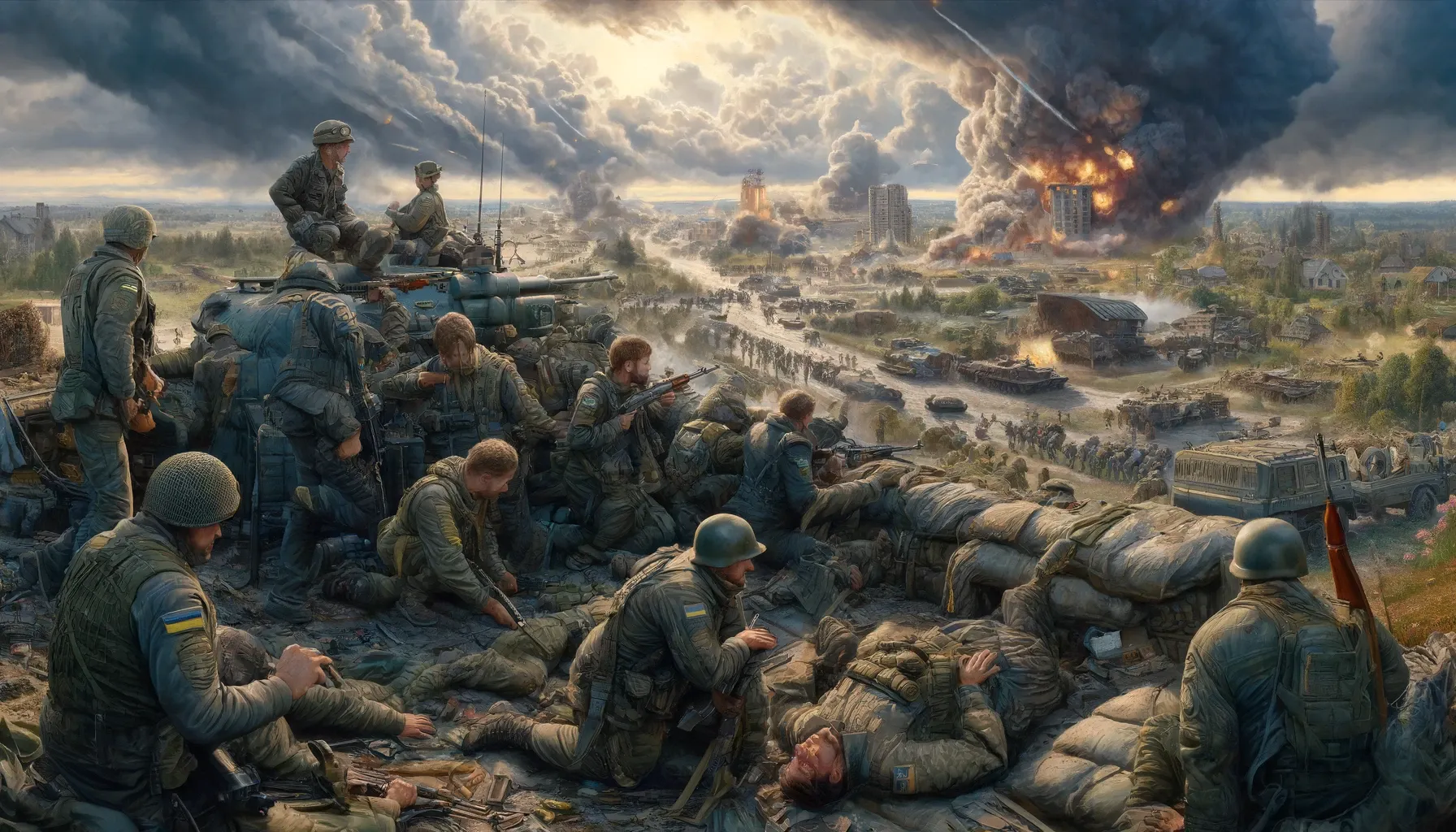Facing Russian Advance, a Top Ukrainian General Paints a Bleak Picture
As reported by The New York Times, Ukraine's military faces increasingly dire circumstances amid the ongoing conflict with Russia. The head of Ukraine’s military intelligence, General Kyrylo Budanov, recently issued a stark warning about the state of Ukraine's defenses. In a critical assessment, he revealed
As reported by The New York Times, Ukraine's military faces increasingly dire circumstances amid the ongoing conflict with Russia. The head of Ukraine’s military intelligence, General Kyrylo Budanov, recently issued a stark warning about the state of Ukraine's defenses. In a critical assessment, he revealed that Ukraine's forces are stretched thin, with minimal reserves to draw on, and are facing severe shortages of weapons.
“The situation is on the edge,” General Budanov stated in a video call from a bunker in Kharkiv, emphasizing the urgency of the situation as Russian forces advance in the northeast. His bleak outlook echoes the sentiments of other Ukrainian officials, who have warned that Ukraine's military prospects are dimming due to being outnumbered and undersupplied. “I’ve used everything we have. Unfortunately, we don’t have anyone else in the reserves,” Budanov lamented, highlighting the exhaustion of Ukraine's available forces.
In the past week, Russian troops have surged across the border near Kharkiv, capturing several settlements and forcing thousands of civilians to flee. The Ukrainian military is attempting to redirect troops from other front-line areas to bolster defenses in the northeast, but finding sufficient personnel has proven difficult. General Budanov acknowledged that Russian attacks in the northeast are likely intended to stretch Ukraine’s already thin reserves and divert attention from other crucial areas of the front line.
The situation on the ground is dire. In Vovchansk, a town near the Ukrainian-Russian border, Russian airstrikes are relentless. Denys Yaroslavsky, a senior lieutenant commanding a unit in the area, reported that Russian forces were dropping five to seven bombs every three minutes. Local officials are struggling to evacuate the remaining residents amid constant shelling.
The advance on Vovchansk and surrounding areas followed weeks of warnings from Ukrainian officials about a potential Russian offensive in the northeast. Despite these warnings, Ukrainian forces have struggled to hold back the Russian advance, which has already seized about 50 square miles of territory. Ukrainian General Staff has acknowledged that the enemy is achieving tactical success, further complicating Ukraine's defensive efforts.
In response to these challenges, Ukraine's military command has made changes, including the dismissal and replacement of the commander responsible for the northeast front. However, the rapid advance of Russian forces through lightly defended and largely depopulated territory has left many settlements in what Ukrainian officials refer to as the "gray zone" — contested areas between Ukrainian and Russian positions. This has created a volatile and dangerous environment for both military personnel and civilians.
The situation remains fluid and unpredictable. General Budanov expects Russian forces to launch a new attack further north of Kharkiv, in the Sumy region, in the coming days. Ukrainian forces are bracing for intensified fighting as Russian troops approach more populated areas. Local authorities have evacuated nearly 6,000 people since the recent surge in hostilities began, and the evacuation efforts continue under the constant threat of Russian shelling.
Military analysts suggest that Russia's primary objective is to draw Ukrainian forces away from other critical fronts, such as Chasiv Yar, a strategic location in the southeastern Donbas region. By doing so, Russia aims to weaken Ukraine's overall defensive capabilities and gain a strategic advantage in the ongoing conflict.
As Ukraine faces these daunting challenges, the international community must recognize the critical situation and continue to provide support to bolster Ukraine's defenses. The resilience and determination of Ukraine's military and civilian population are being tested as never before, and the outcome of this conflict will have far-reaching implications for the region and beyond.





